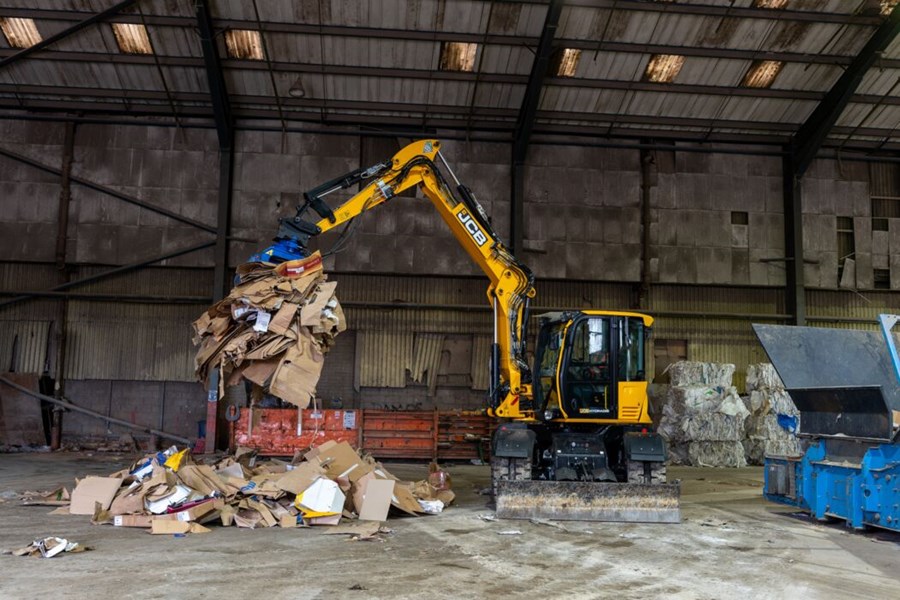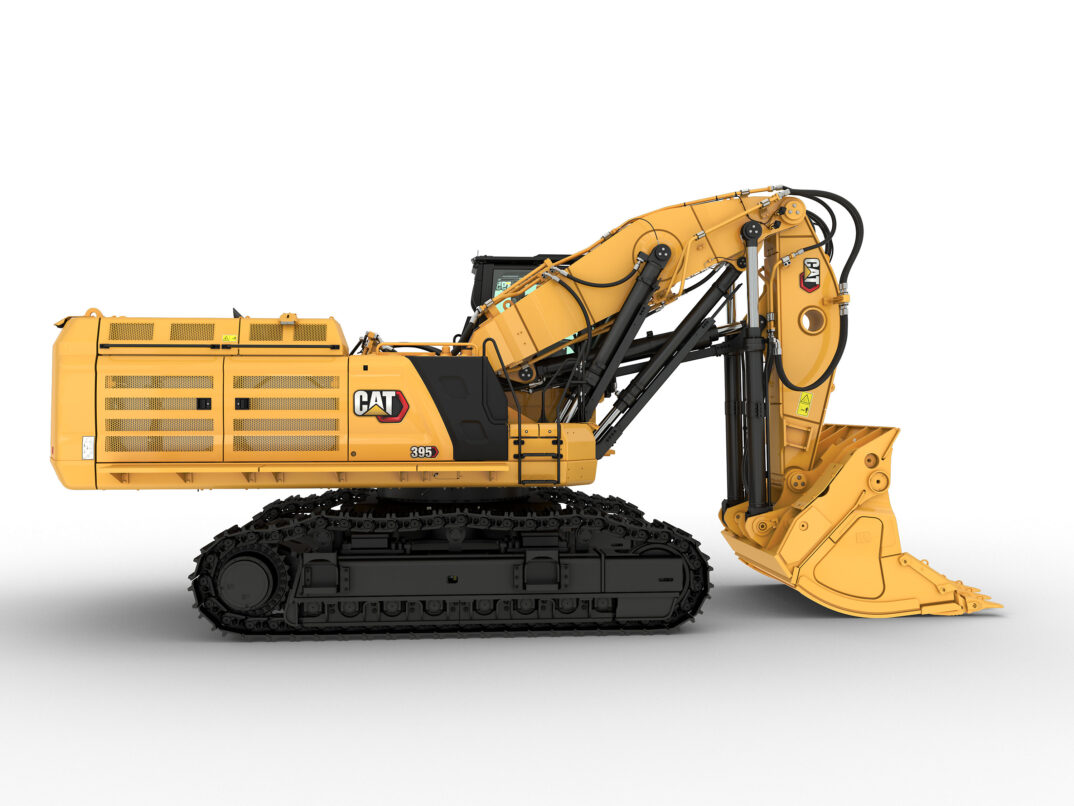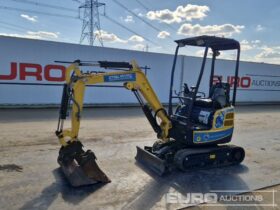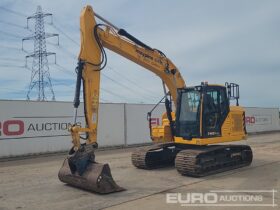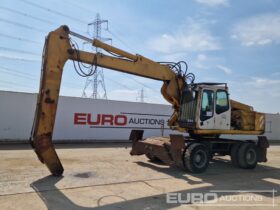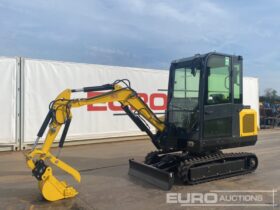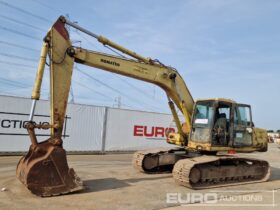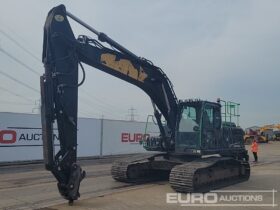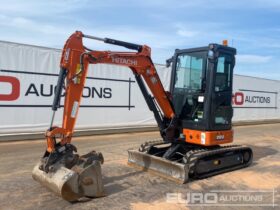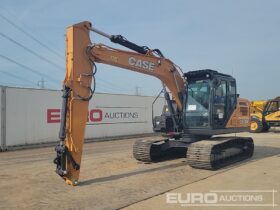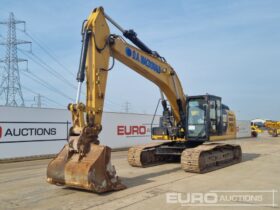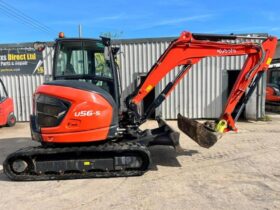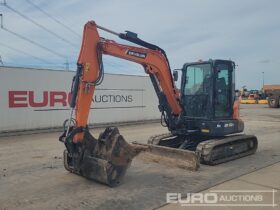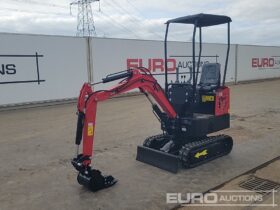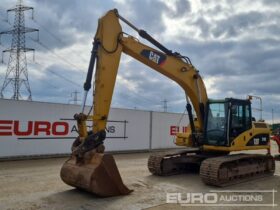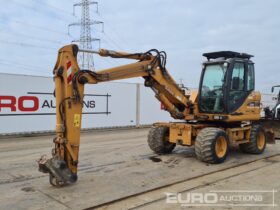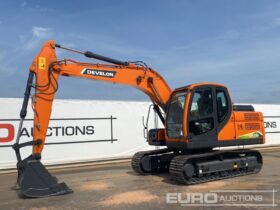Excavators for Sale (1567)
As the most popular construction plant machine, you will always find all types of used excavators for sale on these pages. This means that a mini-digger will be shown alongside a huge tracked excavator. This is great if you are a regular buyer of all types of used excavators and you are simply looking to bag a bargain. Of the excavators on sale here, some will be advertised by experienced plant traders who can assist you in the purchase of a mini digger for sale – especially if you are inexperienced in the marketplace. Other machines are advertised directly by the operators. In these cases you will be able to ask more detailed questions about the history of the machine, but with fewer avenues for compensation should the machine be of poorer quality. Finally, there are usually hundreds of excavators for auction listed here – if you can wait until the sale date to buy an excavator and you are less worried about buying the machine as seen, then you should definitely find the right used excavator for sale right here at Plant Pages.
To help in your search you can filter using a specific sub-category. Looking for a wheeled excavator? No problem, simply filter on the wheeled excavator category and that’s all you’ll see. Looking for a smaller excavator in the sub eight tonne bracket – then filter using ‘mini-excavators’. After some firther buying advice? Read our report below
More Excavators Info
Buying a Used Excavator
Is Bigger Better?
The choice of excavator size is almost mind-boggling, but it is important to get the right size for the job in hand. Sometimes this may involve compromises. If a machine is always on the move between jobs, then it needs to be easy to transport by the methods you have available. Broadly speaking, if the excavator is too large for the truck or trailer that you were hoping to use, then it might not be best for you, even if it is perfect for the digging job in hand.
This is a particularly important consideration when looking at mini excavators that you are hoping to tow behind a car or van. The issue applies equally to a large tracked excavator that requires specialist road transport with the increased associated costs.
Tracked or Wheeled Excavator?
This depends on the type of work to be carried out and the surfaces that the excavator will be spending most of it s time on.
Operating a tracked excavator on a tarmac surface, for example, will win over no friends at all. This means that a lot of road repairs and the final stages of road building will be carried out with a wheeled excavator. Similarly a lot of waste processing roles require the use of a wheeled excavator to move around site safely and with pace.
If the site surface permits the use of a tracked excavator then they are by far and away the best option thanks to their increased digging stability. A tracked excavator can simply move to a spot and then dig, whereas a wheel loader would need to deploy their rear dozer blade as a minimum, or use it in combination with front outriggers – or use four outriggers all round.
So, stability and resulting efficiency makes the tracked excavator the choice every time – this is why they hugely outnumber the wheeled variety on Plantpages.
What is a Zero Swing Excavator?
All excavators can rotate 360 degrees when working. Consider the shape of the tracks or chassis and they are longer than they are wide. This means that, on a conventional excavator, the rear part of the excavator body (the heavy part where the weights are) will protrude from the side of the tracks when at 90 degrees to the tracks. This is fine on a large, open building site, but, if operating in narrower spaces, it means that the operator would have to consider the safety of the rear of the machine when moving the digging arm left to right.
A zero swing machine will not protrude from the width of the tracks, making it a safer alternative and easier to operate from the driver’s perspective. Most zero swing excavators will have a ‘Z’ somewhere in their model number.
Will a Standard Arm Do?
All excavators ship with a standard length arm when sold to optimise lifting ability and breakout force, but you may have an duty cycle that requires a little more dig depth. You should look for an excavator that has been equipped with a long arm option.
Often combined with some additional counterweights, .you can do more with the excavator without having to keep repositioning
Checking the Condition When Buying a Used Excavator
Make sure that you carry out a thorough machine inspection before parting with your hard-earned money. Start off with a simple walk around the machine. Check for any cracks, welds and rust. Start the machine and listen for any unusual noises from the engine and check for smoke on start up and under load. A visual check of the engine is also helpful. One that is covered in mud and dirt may not have received the best in terms of preventative maintenance!
Check the quality of all hydraulic joints and hoses – do any look wet?
Get in the cab and test every button and lever – if you don’t know what it is supposed to do then ask. If the seller doesn’t know either you should ask yourself why?
What about the attachments? Does the machine come with more than one bucket, for example?
What about the paperwork? Check for any service history to verify the hours shown.
Are the serial numbers in place and correct? You need to make sure the machine is a genuine item.
Latest Excavators News
New Generation of Bobcat 1-2 t Mini Excavators
Bobcat has revealed the company’s new groundbreaking R2-Series 1-2 tonne mini excavator models for the first time. The new generation R2-Series 1-2 tonne mini excavators include the E16, E17z, E19 and E20z models, replacing the previous M-Series E17, E17z, E19 and E20z machines, respectively. The M-Series, originally introduced in 2014, has now been succeeded by...
Komatsu reveals Upgraded PW148-11 prototype
Komatsu has revealed an upgraded PW148-11 wheel loader prototype at Bauma 2025. This upgrade aligns the 14-tonne short-tail bestseller with the same features of the recently launched PW168-11 and PW198-11 models, including a new design, reduced transport height, enhanced operator comfort, and increased durability. All-wheel-steering option for better manoeuvrability Included in the upgrade is an...
Flexible New JCB Hydradig is a Winner
Two new JCB Hydradigs have been earning their keep from day one of their delivery to a waste management company in Northern Ireland – thanks to their ability to do multiple jobs. Purchased by Portadown-based ABC Waste Management, the JCB Hydradig 110W Plus was supplied by dealer Dennison JCB. It joins a JCB TM320 Wastemaster,...
Volvo CE and Unicontrol announce partnership for advanced machine control technology
Volvo CE and Unicontrol have announced their intention to partner to introduce the software company’s 3D machine control technology in Volvo excavators. The partnership will allow Volvo CE to ensure its advanced technology is made open, accessible and easy to use for improved efficiency. Offering one interface with one set of hardware, the technology has...
Caterpillar 395 Front Shovel Large Excavator Unveiled
Caterpillar has chosen bauma to unveil the Cat 395 Front Shovel Large Excavator, the company’s first new Front Shovel configuration in 15 years. Designed to meet the exacting needs and expectations of mining and quarry customers, this new Caterpillar model takes full advantage of standard next generation features, such as fuel economy and low maintenance...



